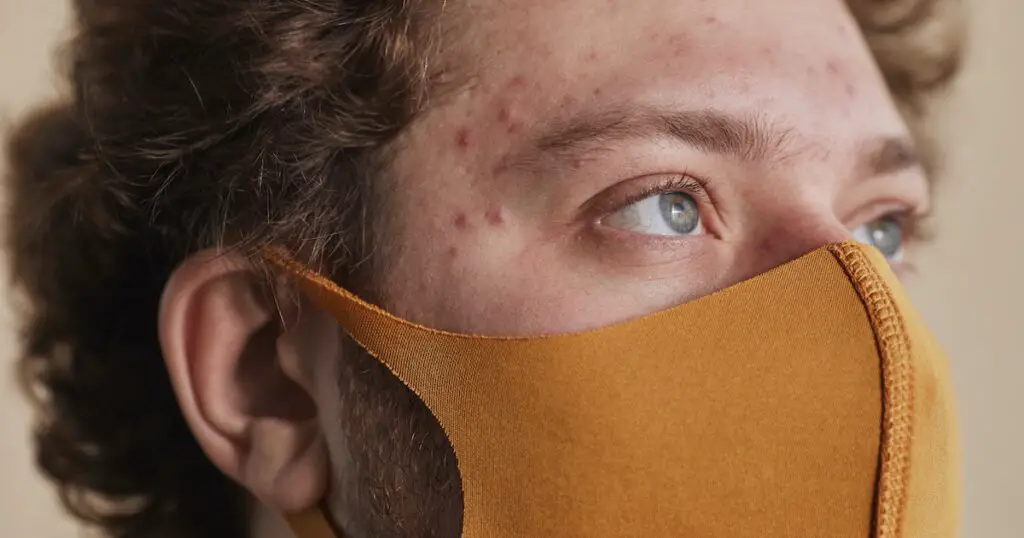CeraVe causing Cystic Acne: Fact or Fiction?
When it comes to skincare, the search for perfect, blemish-free skin often takes us down long, twisting roads full of promises and warnings. One of these stories lately getting much attention is about the well-known skincare brand CeraVe.
People are saying that the items that are supposed to nourish and heal the skin may be causing cystic acne, which is not what they were meant to do. Do facts back up these claims, or are they just made up by people with erroneous beliefs?
In this blog post, we set out to find the answer to a difficult question: Does CeraVe really causing cystic acne?
Table of Contents
CeraVe and its Benefits
The skincare brand CeraVe is frequently suggested for use by dermatologists. This is a reasonably priced, easily accessible, and efficient skincare line suitable for use on all kinds of skin. A cleanser, a moisturizer, and sunscreen are the three primary items that CeraVe offers. This cleanser produces no foam, does not irritate the skin, and contains ceramides that help restore the skin’s protective barrier.
Hyaluronic acid is present in the light and oil-free moisturizer, contributing to the product’s ability to bind moisture to the skin. Zinc oxide and titanium dioxide are both components of the broad-spectrum sunscreen that protect your skin from the harmful effects of the sun.
Because it does not cause irritation to the skin and does not clog pores, CeraVe is an excellent alternative for persons who have sensitive skin. The formulation of CeraVe excludes the presence of scent, parabens, sulfates, and phthalates.
Because it contains salicylic acid, an element that helps fight acne, CeraVe is another excellent option for people with this skin condition. CeraVe can be purchased at the majority of pharmacies as well as online.
Cause and Effect: CeraVe Causing Cystic Acne
One of the most popular products of CeraVe is their Moisturizing Cream, which is often used to help treat dry skin. However, some users have reported that this cream can cause cystic acne.
Cystic acne is a kind of acne that is characterized by huge, deep, and painful pimples. Cystic acne can be very painful. This acne is often difficult to treat and can lead to scarring. While there are many potential causes of cystic acne, some users have reported that CeraVe’s Moisturizing Cream is a potential trigger.
CeraVe’s Moisturizing Cream could cause cystic acne for a few possible reasons. One possibility is that the cream is occlusive, which can block pores and trap bacteria. This can result in inflammation and the development of acne. The cream also contains ingredients like ceramides and hyaluronic acid, which could irritate the skin and trigger an acne flare-up.

Scientific Evidence Behind CeraVe Causing Cystic Acne
There has been a lot of debate lately about whether or not CeraVe is causing cystic acne. Some people swear by the product, while others say it’s the worst thing they’ve ever used. So, what’s the truth?
First, let’s start with a little bit of background information. CeraVe is a skincare line marketed as “dermatologist recommended.” The line includes cleansers, moisturizers, and sunscreens, all designed to be gentle and non-irritating. CeraVe is also known for being affordable and accessible, as it is sold at drugstores and mass retailers like Target and Walmart.
Now, onto the question at hand: is CeraVe causing cystic acne?
Because everyone’s skin is different, there is no clear answer. However, there are a few things to consider.
CeraVe contains a lot of ingredients that can be problematic for people with acne-prone skin. For example, the cleansers contain sodium laureth sulfate, a known irritant. The moisturizers also contain petrolatum, which can clog pores and lead to breakouts.
There is no scientific evidence that CeraVe is causing cystic acne. In fact, CeraVe is often recommended by dermatologists as a gentle, effective cleanser for acne-prone skin. However, because CeraVe contains hyaluronic acid, some people may be concerned that it could worsen their acne.
Debunking Myths and Addressing Concerns
Regarding skin hygiene, there are numerous myths and misconceptions. One of the most common is “CeraVe causing cystic acne”.
This is simply not true. CeraVe is actually one of the best skincare products on the market for acne-prone skin. Dermatologists often recommend it.
So, what is the cause of cystic acne?
Cystic acne happens when oil and dead skin cells build up in the pores. This can be caused by a number of things, including hormones, stress, genetics, and even certain skincare products.
However, there have been some concerns raised about CeraVe causing cystic acne. While it is true that CeraVe can cause some side effects, such as dryness, redness, and irritation, these side effects are typically mild and temporary. There is no evidence to suggest that CeraVe causes cystic acne. CeraVe can be quite helpful for people who suffer from this condition.
User Experiences on CeraVe Causing Cystic Acne
When it comes to skincare, no two individuals are the same. Different people have different skin types, sensitivities, and concerns. Because of this, user experiences and reviews are a big part of figuring out how well a product works. In the case of CeraVe and cystic acne, it’s important to listen to people who have used the brand’s products and have first-hand stories to share.
After reading a lot of user reviews, it’s clear that people have different ideas about how CeraVe causing cystic acne. Some say that using CeraVe made their skin look and feel better, with a smoother appearance, less redness, and fewer breakouts. These people love the brand’s gentle formulas, which are full of ceramides and hyaluronic acid and make skin soft and smooth.
But it’s important to remember that not all circumstances are positive. Some users say that CeraVe products worsened their cystic acne or caused them to break out in surprising places. Even though these stories can’t be ignored, it’s important to consider all the things that could have led to them.
Individual responses to certain ingredients and how sensitive the skin is can greatly affect the results. If you use CeraVe and have noticed that your acne is getting worse, you should stop it immediately and consult a dermatologist.

Expert Recommendations and Dermatologist’s Perspective
If you want to know if there is a link between CeraVe and cystic acne, you should talk to skincare experts and doctors. These experts know a lot about what goes into skincare products, how they are made, and what causes different skin problems. Let’s look at their suggestions and ideas to better understand the situation.
Dermatologists agree that, in general, CeraVe products are good for most skin types, even those that are prone to acne. The brand’s focus on gentle, non-irritating formulas and the use of helpful ingredients like ceramides and hyaluronic acid are in line with what doctors suggest for keeping a healthy skin barrier.
Experts say that cystic acne is a complicated skin disease caused by hormones, genes, and inflammation, among other things. Even though skin care products can help with acne, they are usually not the only cause of cystic acne. Dermatologists say that the chemistry of each person’s skin and the presence of other possible triggers play a big part.
People who use CeraVe products and notice an increase in cystic acne may undergo a temporary adjustment called “purging.” Purging happens when a skin care product speeds up the rate at which skin cells turn over. This brings clogged skin to the surface and causes more breakouts in the short term. But this is a sign that the product is helping to make the skin healthier generally.
It’s important to know that skincare doesn’t come in one size that works for everyone. What works for someone might not work for someone else. To find out if CeraVe or any other medication is good for treating cystic acne, it is important to talk to a professional about your skin’s needs.
Conclusion
Different people have had different experiences with CeraVe and cystic acne. Some say it worked well and made their skin better, while others say it made their skin worse, but there is no scientific proof to show that this is the case. Dermatologists praise CeraVe for its gentle and effective skincare properties, which make it good for most skin types, even skin that gets acne. Personal skin chemistry and sensitivity can have a big effect on the results, so it’s important to talk to a physician if you have any worries.
In the end, the claim that CeraVe causing cystic acne is still not proven. It’s important to think about each person’s experiences and worries, but it’s also important to think about skincare as a whole and the many different ways acne can show up. Making decisions based on professional tips and your own experiences will help you come up with the best, most personalized skincare routine to keep your skin healthy and clear.
FAQs
CeraVe is generally considered suitable for cystic acne, as it is recommended by dermatologists for its gentle and non-irritating formulas, although individual responses may vary.
Yes, certain products can potentially cause cystic acne due to ingredients that may clog pores or trigger inflammation. It is important to be mindful of the ingredients in products and consider consulting a dermatologist for personalized advice.
Using an excessive amount of moisturizer can potentially contribute to cystic acne by clogging pores, but it is not a direct cause. It is important to use an appropriate amount of moisturizer and select non-comedogenic formulas to minimize the risk of acne breakouts.
Common side effects of CeraVe skincare products may include mild dryness, redness, or irritation, although these reactions are generally temporary and well-tolerated. It is recommended to discontinue use if any severe or persistent adverse reactions occur and consult a dermatologist for further guidance.
Breaking out from CeraVe moisturizer could be due to individual sensitivity or a reaction to specific ingredients, such as ceramides or hyaluronic acid. Discontinuing use and consulting a dermatologist can help identify the underlying cause and recommend alternative skincare products.
Disclaimer: This article is for educational purposes only, and does not substitute any medical advice. Always consult a qualified healthcare professional for personalized advice before trying new treatments or medications.

General Physician
Senior Medical Writer






